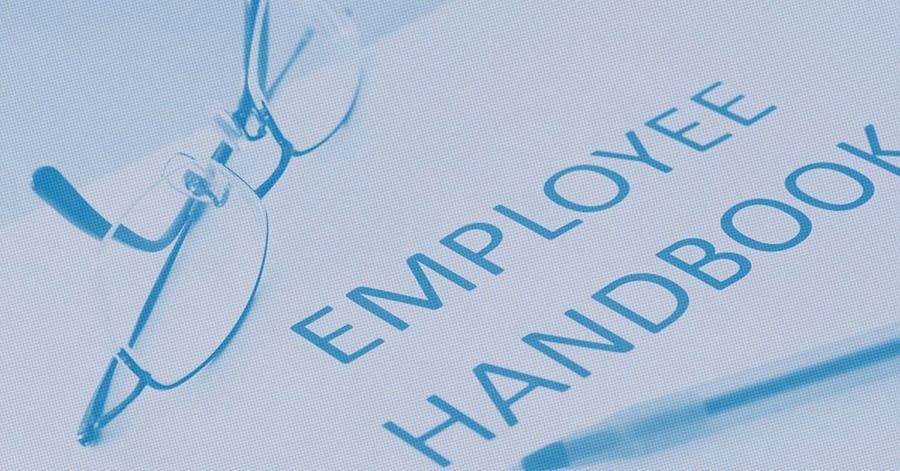With their early August ruling in a case involving Stericycle and a Teamsters union local, members of the National Labor Relations Board (NLRB) have once again redefined what constitutes acceptable workplace rules. Louis J. Cannon Jr., Donna M. Glover and Grant Wills, all attorneys with Baker Donelson, explain what employers need to know. The short version: Update your handbooks.
On Aug. 2, the NLRB issued an important decision in Stericycle, Inc., overruling a precedent that had afforded employers a greater amount of latitude in crafting workplace policies.
In doing so, the board returned to a slightly modified version of the standard that was in place from 2004-2017 for evaluating whether an employer’s maintenance of seemingly neutral work rules (e.g., personal conduct, conflicts of interest, confidentiality of harassment complaints, etc.) are unlawful under Section 8(a)(1) of the National Labor Relations Act (NLRA). The NLRB’s Stericycle, Inc. ruling is effective immediately, applies retroactively and applies to both unionized and non-unionized workplaces.
It also likely means employers will need to reevaluate their handbooks — if not rewrite them altogether.
Background
Section 7 of the NLRA protects workers at both unionized and non-unionized workplaces who engage in concerted activity for the purpose of mutual aid and protection. Section 8(a)(1) of the NLRA prohibits employers from interfering with, restraining or coercing employees who exercise those rights.
The standards utilized by the NLRB in assessing the permissibility of facially neutral workplace rules have been in flux for decades.
In the NLRB’s 2004 Lutheran Heritage Village-Livonia decision, the NLRB adopted a broad standard that asked only whether an employee could “reasonably construe” a challenged workplace rule as prohibiting the exercise of Section 7 rights, such as the rights to organize and bargain collectively. The NLRB subsequently applied this standard to find unlawful many otherwise neutral rules, including rules prohibiting the use of cameras in production areas, disruptive behavior in the workplace and speaking to the public or the media, among others.
The NLRB changed course in 2017 when issuing its decision in Boeing Co. (2017), a Trump-era case that involved an assessment of whether an employer policy restricting the use of camera-enabled devices such as cell phones on company property unlawfully restricted employees’ Section 7 rights. In that case, the NLRB overruled the Lutheran Heritage standard and established what many employers viewed to be a commonsense solution for evaluating the legality of commonplace handbook rules under Section 8(a)(1) of the NLRA. Under the Boeing standard, the NLRB would examine facially neutral policies and handbook provisions by assessing: (1) the rule’s potential impact on protected concerted activity; and (2) the employer’s legitimate business justifications for maintaining the rule.
Under the NLRB’s Boeing analysis, the NLRB would attempt to classify rules into one of three categories, including a category of rules that were always lawful to maintain. In several decisions following Boeing, the NLRB held that rules that were always lawful to maintain included work rules requiring employee confidentiality during employer investigations, rules prohibiting outside employment and civility rules requiring employees to maintain harmonious interactions and relationships.
Uber Hits California Court Speedbump in Labor Case
A unique California labor law withstood a court challenge, dealing a blow to business owners who were seeking limitations on workers’ rights to sue collectively. The California Supreme Court’s decision in the Uber case keeps the controversial law in place, but a trio of attorneys from Seyfarth Shaw — Michael Afar, Bailey Bifoss and Andrew Paley — encourage employers to pump the brakes on pessimism.
Read moreDetailsThe NLRB abandons the Boeing standard
Stericycle, Inc., was a case in which Teamsters Local 628 claimed the employer maintained overly broad work rules for employees, including those that made workers keep harassment complaints confidential and those that prevented them from taking actions that could damage the employer’s reputation. There, the NLRB overruled the Boeing standard in favor of a modified Lutheran Heritage standard after criticizing the former standard as one that permitted employers to adopt “overbroad work rules that chill employees’ exercise of their [Section 7] rights.”
The NLRB offered several rationales for overruling the Boeing standard. The NLRB found that the Boeing standard gave too little weight to the burden a work rule could impose on employees’ Section 7 rights. For example, the NLRB said, the Boeing standard failed to account for the “economic dependency of employees on their employers.” According to the NLRB, because employees are typically “anxious to avoid discharge or discipline,” employees are inclined to view an ambiguous work rule as prohibiting activities otherwise protected by the NLRA, meaning that they would not engage in such protected activity to avoid the risk associated with violating the rule.
By the same token, the NLRB found the Boeing standard gave too much weight to employer interests. The NLRB took the position that the Boeing standard condoned overbroad work rules by not requiring the employer to “narrowly tailor its rules to only promote its legitimate and substantial business interests while avoiding burdening employee rights.” The NLRB also rejected Boeing’s categorical approach to assessing work rules, under which certain types of rules were held to be always lawful.
The new standard
Under the new standard adopted in Stericycle, Inc., the NLRB will again use a case-by-case analysis to assess the legality of a challenged work rule. The NLRB will no longer categorize certain work rules as being always lawful to maintain, creating some uncertainty for employers.
Moving forward, the NLRB’s inquiry will consider the language of the challenged work rule (as viewed from the perspective of an employee subject to the rule), the potential impact of the rule on employees’ Section 7 rights, the employer interests articulated in support of the rule and potential alternatives to the rule.
Similar to the Lutheran Heritage rule, the NLRB’s focus will be on whether an employee could reasonably interpret a rule to prohibit protected activity. If that low bar is met, then the rule is presumed to be unlawful and the employer then would bear the burden of (1) pointing to compelling business reasons for the rule and (2) showing that it could not have adopted a narrower rule to achieve its ends. If it successfully does that, the rule will be found to be lawful.
Takeaways for employers
The Stericycle, Inc. decision is a reminder for unionized and non-unionized employers to work with employment and labor counsel to review and update their employee handbooks and related policies. In light of this decision, it is prudent for employers to proactively identify a legitimate and substantial business interest to support any work rules that could reasonably be construed as having the tendency to chill employees’ Section 7 rights. Employers should also consider whether a more narrowly tailored rule that advances the same interests can be implemented as an alternative. Yes, employers, once again, it is time to review — and probably revise — those handbooks.




 A shareholder in Baker Donelson's Baltimore office, Louis J. Cannon Jr. focuses his practice on labor and employment matters.
A shareholder in Baker Donelson's Baltimore office, Louis J. Cannon Jr. focuses his practice on labor and employment matters.  Donna Glover
Donna Glover Grant Wills
Grant Wills







